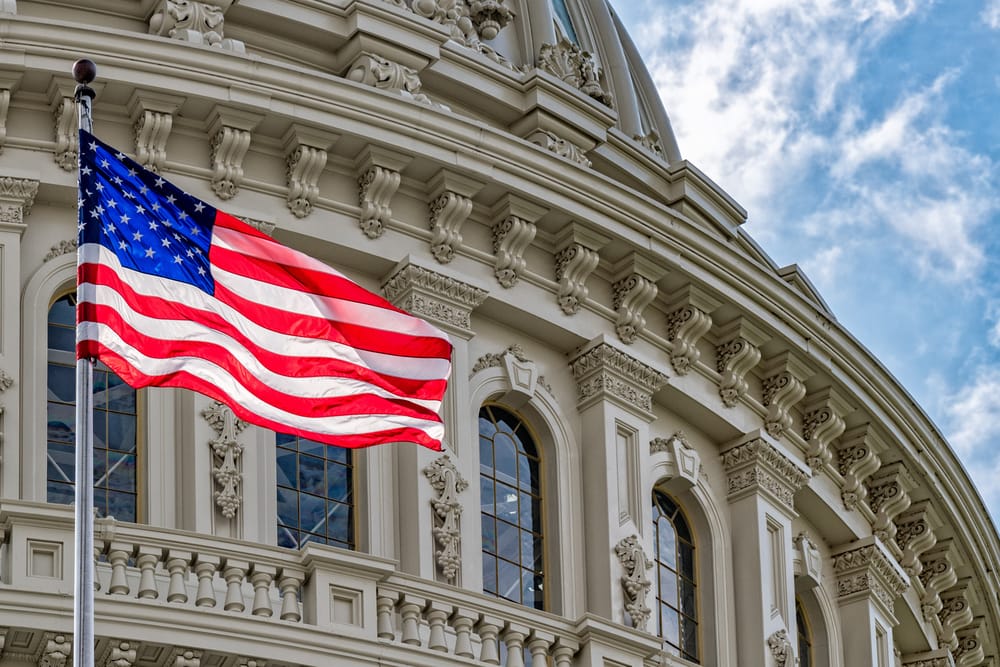In SUPPORT of SB 1260, Relating to Criminal Pretrial Reform.
My name is Anthony Lamorena, and I am a government affairs specialist for the R Street Institute and a former Hawai’i resident and Hawai’i legislative staffer. R Street is a nonprofit, nonpartisan public policy research organization whose mission is to engage in policy research and outreach to promote free markets and limited, effective government in many areas, including criminal justice reform, which is why SB 1260 is of special interest to us.
Here at R Street, we have long supported initiatives that aim to reduce pretrial detention while promoting public safety and a fair, effective and efficient justice system. By limiting the use of cash bail in Hawai’i’s criminal justice system, this bill would do just that.
Cash bail is a poor tool for mitigating an individual’s risk of not appearing at trial or committing a new crime. Rather than ensuring an effective, fair system of justice, it leads to bloated pretrial systems where the rich can buy their freedom while the impoverished languish in jail. Today in Hawai’i, nearly 1,200 people sit in jail, many awaiting trial who have yet to be convicted of any crime and are presumed innocent.[i]
Some critics of cash bail reform argue that limiting cash bail and releasing individuals ahead of their trial date would lead to an increase in crime within the community. However, jurisdictions who have embraced similar reforms have not seen that occur. Indeed, a study by Loyola University found there to be “no significant change” in Chicago’s crime rate or the likelihood an individual would commit a new crime when they studied the effects of bail reform that was passed in Cook County, Illinois.[ii] And other studies evaluating reforms in New York City and Philadelphia provide further evidence that limiting the use of cash bail can reduce pretrial detention populations without jeopardizing public safety.[iii]
Indeed, when cash bail is overused, mothers and fathers are needlessly removed from their families, jobs and communities, a scenario which is always disruptive and even painful.[iv] In addition, defendants who are unable to post bail are not able to put on a strong defense; jail maks communicating with one’s attorney difficult and can serve as a bargaining chip to the benefit of prosecutors. It is thus little surprise that a 2018 study found that being assigned monetary bail alone resulted in a 12 percent increase in someone’s likelihood of conviction and increased their likelihood of returning to crime by as much as 9 percent, rather than preventing it.[v]
The problems with cash bail and pretrial detention become all the more glaring during a pandemic. While families and friends are forced to socially distance to prevent the spread of COVID-19, that same precaution is not always possible in jails and prisons. According to the Marshall Project, Hawai’i has had almost 2,000 prisoners test positive for COVID-19.[vi] Judicious use of cash bail and pretrial detention should be considered an immediate necessity in the state’s pandemic plan.
Limiting the use of cash bail and thus pretrial detention can also help solve the state’s budget crisis. Gov. David Ige has already projected that the State of Hawai’i is looking at a shortfall of $1.4 billion.[vii] Relying more on alternatives to cash bail and detention, such as pretrial services, can help reduce this damage. For example, in Iowa, an audit of their pretrial service program found that $15,393 was saved for every person that was released. Similarly limiting pretrial detention in Hawai’i could be a creative way to help address the state’s current economic quagmire.
The truth is the current cash bail system is ripe for reform. As the state’s economy and clear inequities in justice loom large on legislators’ minds, reforming cash bail could be an easy fix. These changes will make much needed improvements to Hawai’i’s criminal justice system, but these reforms could also help lawmakers save big and show they are willing to think outside the box when it comes to helping their constituents during the pandemic.
Mahalo!
Anthony Lamorena
Government Affairs Associate
R Street Institute
(202) 525-5717
alamorena@rstreet.org
[i] “Department of Safety Weekly Population Report,” Department of Public Safety, March 2, 2021. https://dps.hawaii.gov/wp-content/uploads/2021/03/Pop-Reports-Weekly-2021-03-01.pdf.
[ii] Don Stemen and David Olson, “Dollars and Sense in Cook County,” Loyola University Chicago, Nov. 19, 2020, pp. X. https://www.safetyandjusticechallenge.org/wp-content/uploads/2020/11/Report-Dollars-and-Sense-in-Cook-County.pdf.
[iii] Ibid., p. 1.
[iv] Lars Trautman, “Why the cash bail system will make the coronavirus pandemic much worse,” Washington Examiner, April 2, 2020. https://www.washingtonexaminer.com/opinion/why-the-cash-bail-system-will-make-the-coronavirus-pandemic-much-worse.
[v] Arpit Gupta et al., “The Heavy Costs of High Bail: Evidence from Judge Randomization,” The Journal of Legal Studies 45:2 (April 18, 2016). https://www.journals.uchicago.edu/doi/abs/10.1086/688907.
[vi] “A State-by-State Look at Coronavirus in Prisons,” The Marshall Project, last updated March 12, 2021. https://www.themarshallproject.org/2020/05/01/a-state-by-state-look-at-coronavirus-in-prisons.
[vii] Audrey McAvoy, “Hawaii lawmakers face tough choices amid pandemic recession,” AP News, Jan. 18, 2021. https://apnews.com/article/david-ige-coronavirus-pandemic-hawaii-financial-markets-economy-f234acc4b45a151cca5775c8d4c10057



